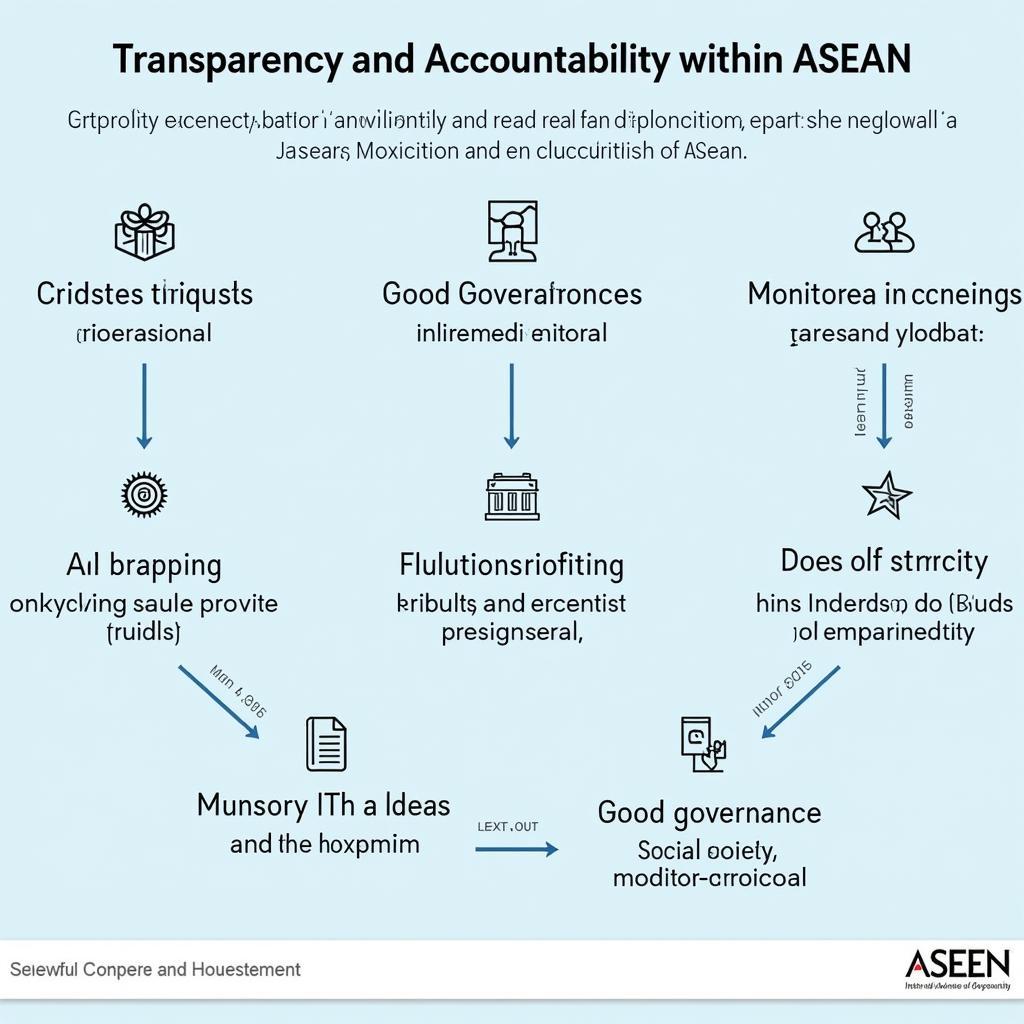The Association of Southeast Asian Nations (ASEAN) often finds itself at the heart of debate, with both fervent supporters and staunch skeptics voicing their perspectives. While the organization has undoubtedly achieved significant milestones, some remain unconvinced about its efficacy and future prospects. This article delves into the common doubts surrounding ASEAN, examining their validity and highlighting the realities that often get overlooked.
Unveiling the Roots of Skepticism
Skepticism towards ASEAN stems from a variety of factors, ranging from concerns about its effectiveness to questions about its relevance in a rapidly changing geopolitical landscape.
1. The “Talk Shop” Criticism
One of the most prevalent criticisms leveled at ASEAN is its perceived tendency to prioritize endless discussions over concrete action. Critics argue that while ASEAN summits and meetings generate impressive documents and declarations, they often fail to translate into tangible outcomes on the ground. This “talk shop” image has led some to question the organization’s ability to effectively address pressing regional challenges.
2. The Question of Unity and Consensus
ASEAN’s commitment to consensus-based decision-making, while designed to foster unity and cooperation, has also been a source of skepticism. Critics argue that this approach often leads to the lowest common denominator being adopted, hindering the organization’s ability to make bold and decisive moves. The diverse political systems, economic disparities, and varying national interests within ASEAN further complicate the pursuit of consensus.
3. Concerns about Transparency and Accountability
Another point of contention revolves around issues of transparency and accountability within ASEAN. The organization has been criticized for its lack of open dialogue with civil society and for limited mechanisms to hold member states accountable for their commitments.
 Transparency and Accountability in ASEAN
Transparency and Accountability in ASEAN
Addressing the Doubts: A Look at the Realities
While the criticisms directed at ASEAN should not be dismissed, it’s essential to acknowledge the nuances and complexities that shape the organization’s reality.
1. A Balancing Act of Diverse Interests
ASEAN’s commitment to consensus reflects the diverse nature of its member states. Each nation brings its own unique perspective, priorities, and constraints to the table. While this can sometimes lead to slow progress, it also ensures that decisions, when made, have broader buy-in and are more likely to be implemented effectively.
“Dismissing ASEAN as merely a ‘talk shop’ ignores the crucial role it plays in facilitating dialogue and building trust among nations with vastly different backgrounds and interests,” notes Dr. Amelia Tan, a prominent Southeast Asian political analyst. “The consensus-based model, while challenging, is essential in fostering a sense of ownership and shared responsibility among member states.”
2. Tangible Achievements and Progress
Despite the criticisms, ASEAN has a track record of significant achievements. The organization has played a pivotal role in maintaining peace and stability in Southeast Asia, a region with a history of conflict. The establishment of the ASEAN Free Trade Area (AFTA) has boosted intra-regional trade and economic cooperation.
3. Evolving to Meet New Challenges
ASEAN is not static; it continuously adapts to address emerging challenges and seize new opportunities. The organization has taken steps to enhance its engagement with civil society and is actively working to improve transparency and accountability mechanisms.
 ASEAN Community Building
ASEAN Community Building
Navigating the Future: ASEAN’s Enduring Relevance
As Southeast Asia continues to evolve into a global economic powerhouse and a strategically significant region, ASEAN’s role remains crucial. The organization provides a platform for dialogue, cooperation, and collective action on issues that transcend national borders. While challenges and skepticism will undoubtedly persist, ASEAN’s ability to adapt, evolve, and deliver on its promises will ultimately determine its long-term success.
For those seeking a deeper understanding of ASEAN’s complexities, it’s essential to look beyond the headlines and engage with diverse perspectives. The organization’s journey, much like the region it represents, is a testament to the power of collaboration and the enduring belief in a shared future.
FAQs: Addressing Common Questions about ASEAN and Skepticism
1. What are the main reasons people are skeptical of ASEAN?
Skepticism often stems from concerns about ASEAN’s effectiveness, its consensus-based approach leading to slow decision-making, and perceived lack of transparency.
2. How does ASEAN address the concerns of its critics?
ASEAN acknowledges the need for continuous improvement. It strives to balance diverse interests, highlight its achievements (like AFTA), and adapt to new challenges by enhancing transparency and engagement.
3. Is ASEAN still relevant in today’s world?
Yes, as Southeast Asia’s geopolitical importance grows, ASEAN remains crucial. It fosters dialogue and cooperation on transnational issues, making it more relevant than ever.
Exploring Further:
For more insights into specific aspects of ASEAN, you can refer to our previous articles:
Need Assistance?
For any inquiries or support, please contact us:
- Phone Number: 0369020373
- Email: [email protected]
- Address: Thon Ngoc Lien, Hiep Hoa, Bac Giang, Vietnam.
Our dedicated customer service team is available 24/7 to assist you.